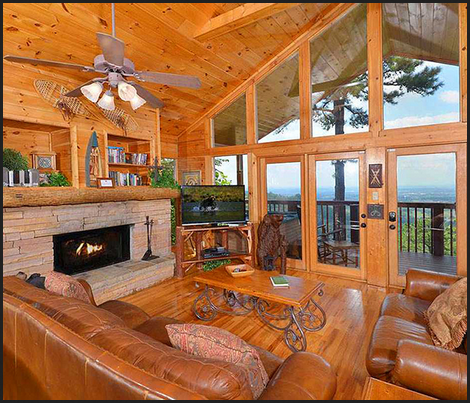What to Look for in Quality Kentucky Log Cabin Home Kits

Building a log cabin home has become increasingly popular in recent years, offering a unique blend of rustic charm and modern comfort. Choosing a suitable home kit is essential if you’re considering building a log cabin in Kentucky. This guide will help you understand what to look for in quality Kentucky log cabin home kits to ensure a successful and enjoyable building experience.
Key Factors to Consider:
- Reputation and Experience:
- Research and Reviews: Look for companies with a strong reputation in the log cabin industry. Read reviews and testimonials from previous customers to gauge their satisfaction.
- Experience: Choose a company with extensive experience designing and manufacturing log cabin home kits, as they will have the expertise to guide you through the process.
- Quality of Materials:
- Wood Species: The type of wood used in the log cabin kit is crucial. Consider factors such as durability, appearance, and maintenance requirements. Popular choices include white pine, Douglas fir, and cedar.
- Wood Quality: Ensure that the wood used is high quality and free from defects such as knots, cracks, or insect damage.
- Design and Customization:
- Floor Plans: Choose a floor plan that meets your family’s needs and lifestyle.
Consider the number of bedrooms, bathrooms, and living spaces.
- Customization Options: Look for a company that offers a variety of customization options to personalize your log cabin home. This may include changes to the floor plan, exterior finishes, or interior features.
- Engineering and Structural Integrity:
- Engineering Plans: Ensure the log cabin kit has detailed engineering plans that meet local building codes and regulations.
- Structural Integrity: Verify that the structural components of the kit are designed to withstand the local climate and weather conditions.
- Insulation and Energy Efficiency:
- Insulation: Log cabins can be highly energy-efficient if adequately insulated. Look for kits that include high-quality insulation materials to keep your home warm in the winter and cool in the summer.
- Energy-Efficient Features: Consider features such as double-pane windows, efficient heating and cooling systems, and solar panels to enhance energy efficiency further.
- Warranty and Support:
- Warranty: A reputable company will offer a warranty on their log cabin kits to protect you from defects or issues.
- Customer Support: Ensure the company provides excellent customer support, including technical assistance and guidance, throughout the building process.
- Delivery and Installation:
- Delivery Options: Consider the company’s delivery options and fees. Some companies may offer delivery directly to your site, while others may require you to arrange transportation.
- Installation Assistance: If you need to become more experienced in construction, inquire about the company’s installation services or recommendations for local contractors.
Additional Considerations:
- Permits and Inspections: Research the local permitting and inspection requirements for building a log cabin home.
- Site Preparation: Prepare your building site by clearing the land, leveling the ground, and ensuring proper drainage.
- Foundation: Choose a suitable foundation type for your log cabin, such as a concrete slab, pier foundation, or crawl space.
- Environmental Impact: Consider the environmental impact of the wood used in the log cabin kit. Look for companies that source their wood from sustainable forests and use environmentally friendly manufacturing practices.
- Accessibility: If you have mobility limitations, ensure the log cabin design and layout are accessible to all family members.
- Maintenance: Research the maintenance requirements of a log cabin home, including sealing the logs, cleaning the exterior, and inspecting for any damage.
Wrapping up
Choosing the fitting Kentucky log cabin home kit is an important decision that will impact your life. You can find a kit that meets your needs and expectations by carefully considering the factors outlined in this guide. Do your research, visit showrooms if possible, and ask questions to ensure you make an informed decision.